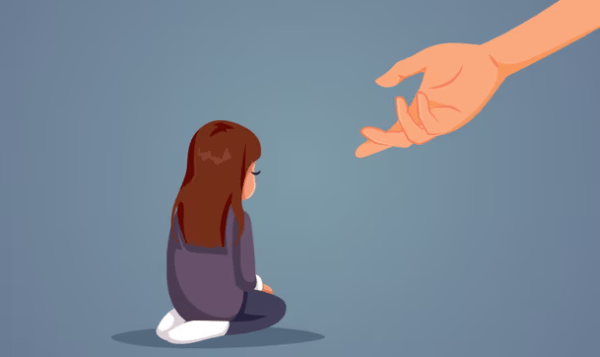Here’s how parents can support a child who has experienced sexual abuse trauma
August 3, 2023 · By Jane O'Keeffe for www.theguardian.com

‘An environment with safe adults who are attuned to the child’s needs goes a long way in supporting a child to recover from a traumatic experience.’ Photograph: nicoletaionescu/Getty Images
Here’s how parents can support a child who has experienced sexual abuse trauma
A parent’s primary instinct is to protect their children from harm. When a child endures the unspeakable trauma of sexual abuse, parents will often feel guilty and it may take time to process that feeling and heal from it. It’s important for them to understand they are not responsible for something that was out of their control.
In the aftermath of such a distressing experience, parents are their child’s strongest pillar of support and understanding and should focus on what is in their control. As they embark on the arduous path of healing, parents play a crucial role in helping their child find solace and reclaim their sense of security.
Regardless of their age, a survivor who discloses sexual abuse needs to be treated with empathy, supported and taken seriously. When family members or society at large ignore or minimise abuse, secondary trauma can occur.
Here are some ways parents can provide support to a child who has experienced sexual abuse trauma.
1. Believe and validate: The first step in supporting your child is to believe them unequivocally. Children who have experienced sexual abuse may feel an overwhelming sense of guilt, shame and fear of not being believed. It’s essential to tell your child that you believe them and it wasn’t their fault. By offering unconditional love and validation, parents can empower their child to speak their truth.
2. Create a safe space: Let your child know that they can openly express their feelings without repercussions. Create a safe and nurturing environment where open communication is encouraged. However, depending on the age of the child, they may not be able to express their feelings in words. Instead your child may refer to sensations or feelings in their body. They may also cry and rage at things that aren’t at all related. In the case of infants, it is important that you provide comfort, availability, security and safety.
3. Seek professional help: Child sexual abuse trauma can have deep and lasting effects on a child’s mental and emotional wellbeing. Every child responds differently. Some children may become quieter, others may become more dysregulated. It is recommended to seek the guidance of a qualified therapist who specialises in working with child abuse survivors. Professional intervention can help your child process their emotions. The person who the child discloses to also needs to make a report to authorities.
4. Educate yourself: Empower yourself with knowledge about child sexual abuse trauma and its impacts. Understanding the emotional and behavioural rollercoaster that your child may be experiencing will enable you to respond with empathy and compassion, fostering a deeper connection and trust.
5. Encourage expression through art: Children often find it difficult to express their feelings in words. Encourage them to express themselves through art, drawing and storytelling. These creative outlets can serve as a medium for your child to process their emotions in a safe manner.
6. Foster healthy boundaries: Establishing and respecting personal boundaries is crucial for a child’s healing process. Encourage your child to recognise and assert their boundaries, reinforcing the message that their body and emotions are their own.
7. Practice self-care: As a parent supporting a child through a traumatic experience, it is essential to take care of your own wellbeing. Seek support from friends, family or support groups to process your own emotions effectively and maintain a strong foundation to help your child heal. Your child won’t be able to process feelings that you aren’t able to process yourself.
8. Promote positive relationships: Surround your child with a supportive network of family and friends who understand the gravity of the situation and can offer unwavering love and encouragement.
9. Monitor media exposure: Be mindful of the media your child is exposed to, as certain content might trigger distressing memories or emotions. Opt for age-appropriate and positive media content that promotes healing and empowerment.
10. Be patient and understanding: Healing from sexual abuse trauma may be a complex and time-consuming process. Be patient and understanding with your child’s progress, as everyone heals at their own pace.
Children are resilient. An environment with safe adults who are attuned to the child’s needs goes a long way in supporting a child to recover from a traumatic experience. By establishing a strong foundation of trust, communication and love, parents can play a pivotal role in helping their child reclaim their sense of safety, self-worth and embark on a journey towards healing.






